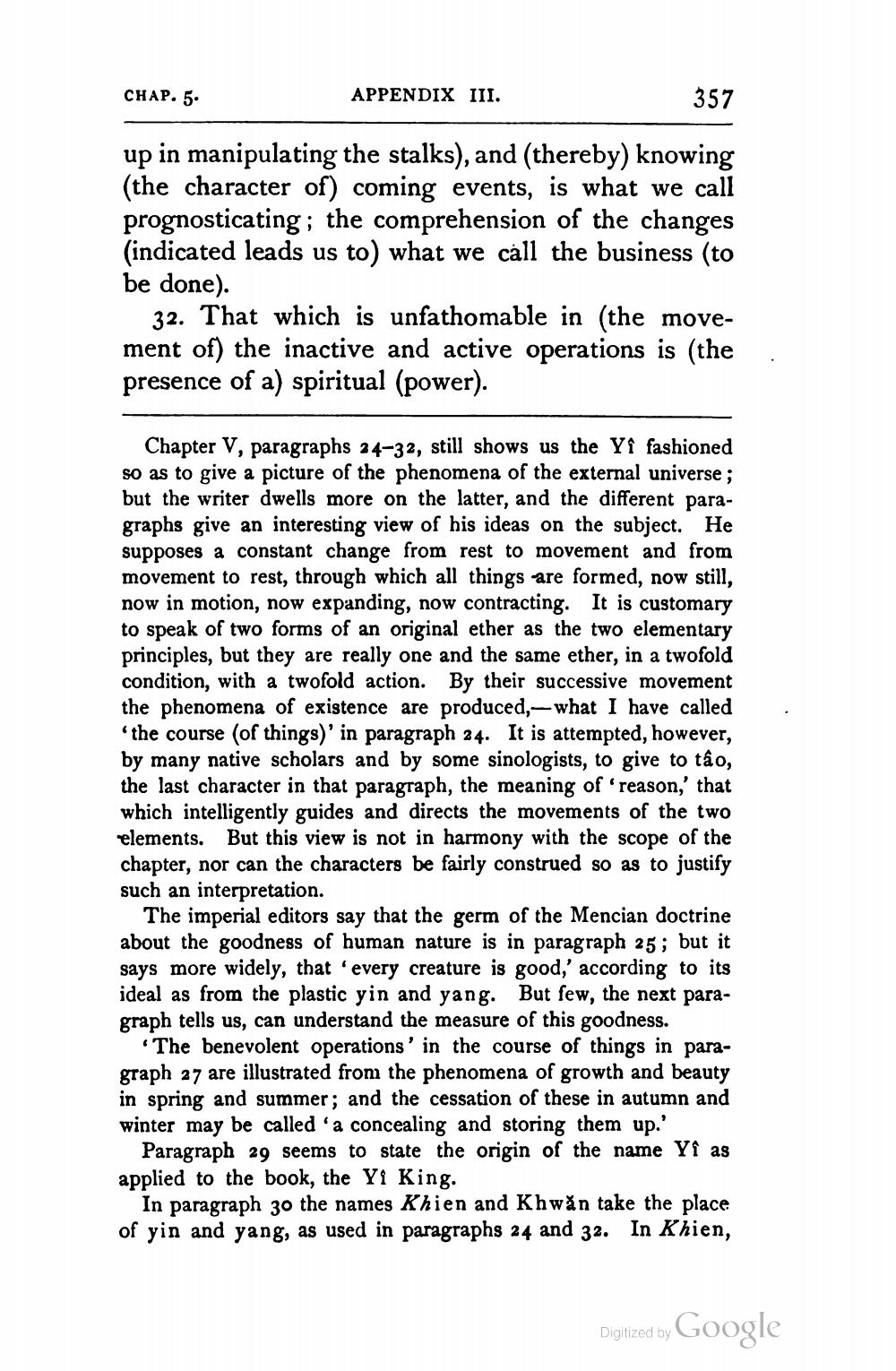________________
CHAP. 5.
APPENDIX III.
357
up in manipulating the stalks), and (thereby) knowing (the character of) coming events, is what we call prognosticating; the comprehension of the changes (indicated leads us to) what we call the business (to be done).
32. That which is unfathomable in the movement of) the inactive and active operations is (the presence of a) spiritual (power).
Chapter V, paragraphs 24-32, still shows us the Yi fashioned so as to give a picture of the phenomena of the external universe ; but the writer dwells more on the latter, and the different paragraphs give an interesting view of his ideas on the subject. He supposes a constant change from rest to movement and from movement to rest, through which all things are formed, now still, now in motion, now expanding, now contracting. It is customary to speak of two forms of an original ether as the two elementary principles, but they are really one and the same ether, in a twofold condition, with a twofold action. By their successive movement the phenomena of existence are produced, - what I have called 'the course (of things)'in paragraph 24. It is attempted, however, by many native scholars and by some sinologists, to give to tâo, the last character in that paragraph, the meaning of reason,' that which intelligently guides and directs the movements of the two elements. But this view is not in harmony with the scope of the chapter, nor can the characters be fairly construed so as to justify such an interpretation.
The imperial editors say that the germ of the Mencian doctrine about the goodness of human nature is in paragraph 25; but it says more widely, that every creature is good,' according to its ideal as from the plastic yin and yang. But few, the next paragraph tells us, can understand the measure of this goodness.
The benevolent operations' in the course of things in paragraph 27 are illustrated from the phenomena of growth and beauty in spring and summer; and the cessation of these in autumn and winter may be called 'a concealing and storing them up.'
Paragraph 29 seems to state the origin of the name Yi as applied to the book, the Yi King.
In paragraph 30 the names Khien and Khwăn take the place of yin and yang, as used in paragraphs 24 and 32. In Khien,
Digitized by Google




